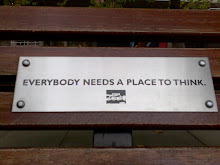
Day 5: Neurological Ward
I am at another placement now. This time - a hospital. I have been observing therapy sessions of my clinician with a lady who recently suffered from a hemorrhage (vessel bleed) on the right side of her brain. She is a young mother with a 4 year old child. Her hemorrhage is related to other cardiovascular and neurological disorders that she had since young. Very sadly, the part of her brain that is most severely damaged is the hippocampus. (The hippocampus plays a critical role in the storage and encoding of memory.)

As such, she now has severe amnesia which affects the storage of new events in her long term memory. New events that we perceive or experience may be coded into our store of long term memory with the help of the hippocampus if our brains deemed that should be so. This lady would say something and forget that she said it within 5 minutes and repeat it again. She is often disorientated as she can't retain the memory of what she did that morning, what day it is, and what she did during therapy yesterday. This makes learning and recovery difficult. The prognosis for such memory disorders is often poor and it is possible that she may need 24 hours care for some time to come. It is obvious that she used to be a very articulate and intelligent lady before the incident. Like the tide, the memory loss ebbs and flows. The knowledge of this loss may be temporarily forgotten but when the memory of it returns, it hits her hard. And her cycle of grief begins again. How does one get over a grief that refuses to be remembered to be stowed away?

Neurological (Brain) disorders express themselves in an incredible number of ways. Patients may be diagnosed with multiple sclerosis, traumatic brain injury (e.g. due to car accidents), brain tumors, stroke, meningitis, motor neuron disease, arterial venous malformation, etc. I meet pain and loss at this ward. I sense them sometimes when patients lower their heads down as they pass me, when their smiles betray a brave front, and when a young 30 year old man (with multiple sclerosis) asked me, "So what's it like out there?" The Buddha said suffering is a part of life. Suffering is a language every human being speaks. The Buddha also said cessation of suffering can come with mental discipline (the right mindfulness). But if a person's brain (of which the sense of mind and self originates) is damaged, how might this "right mindfulness" be cultivated in order for suffering to be ceased?

But you should not think that all's gloom in the ward. I derive immense deep pleasure and learn a lot from supporting, interacting and working with them. Also present and revealed in gentle beautiful ways is beneficence. I meet her when I notice my bed-ridden patient (with a degenerative disease) holding hands with her blind and deaf husband, when I observe the dedication of the therapy team and nursing staff, and when I see the 71 year old mother of a patient sitting by her daughter every single day for hours.

"I find hope in the darkest of days and focus in the brightest. I do not judge the universe." Dalai Lama

No comments:
Post a Comment